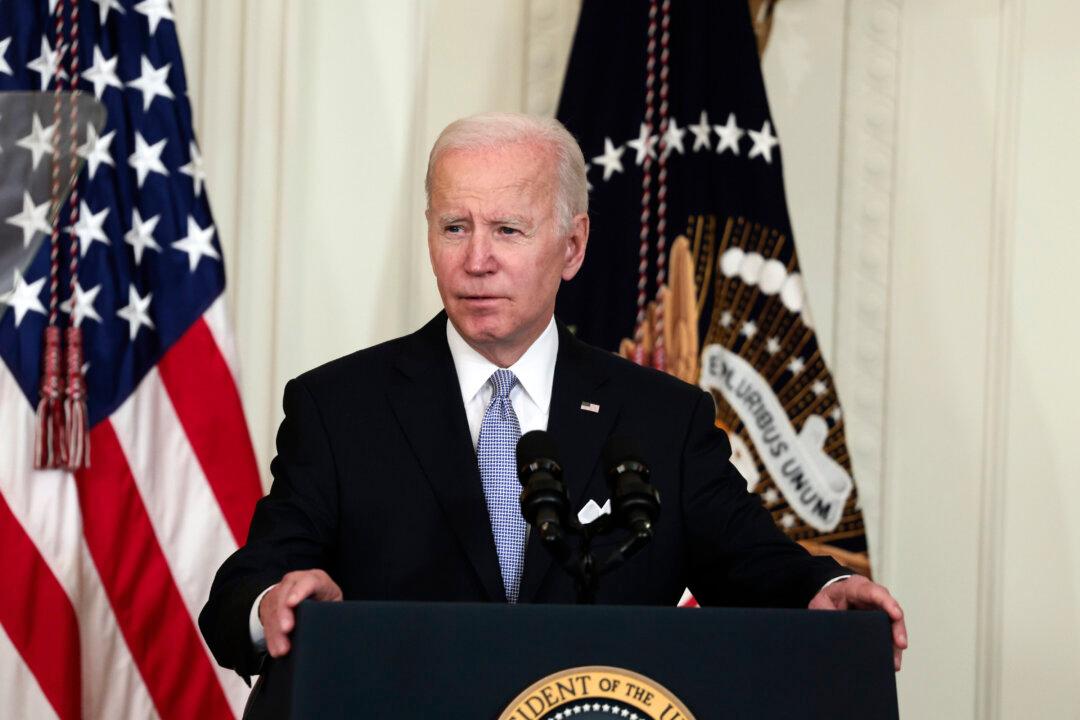The Biden administration’s dramatic expansion of the role of the federal government in business, banking, and society, and sharp break from the deregulatory approach of the Trump presidency, has severely overburdened key sectors and industries of the U.S. economy and helped drive up inflation to the highest rate in four decades, experts say.
The federal budget deficit for the first six months of fiscal year 2022 was $667 billion, according to Congressional Budget Office (CBO) figures. The CBO expects a deficit of $1 trillion for fiscal year 2022 as a whole. This figure represents a decline from the $2.7 trillion recorded for 2021, but by the CBO’s own admission, the decrease is largely a result of lowered spending on COVID-19 relief as the pandemic wanes. Over the long term, the CBO fully expects the deficit to rise to 6.1 percent of gross domestic product (GDP) by 2032 if current trends hold, a threshold surpassed only six times since 1946.





